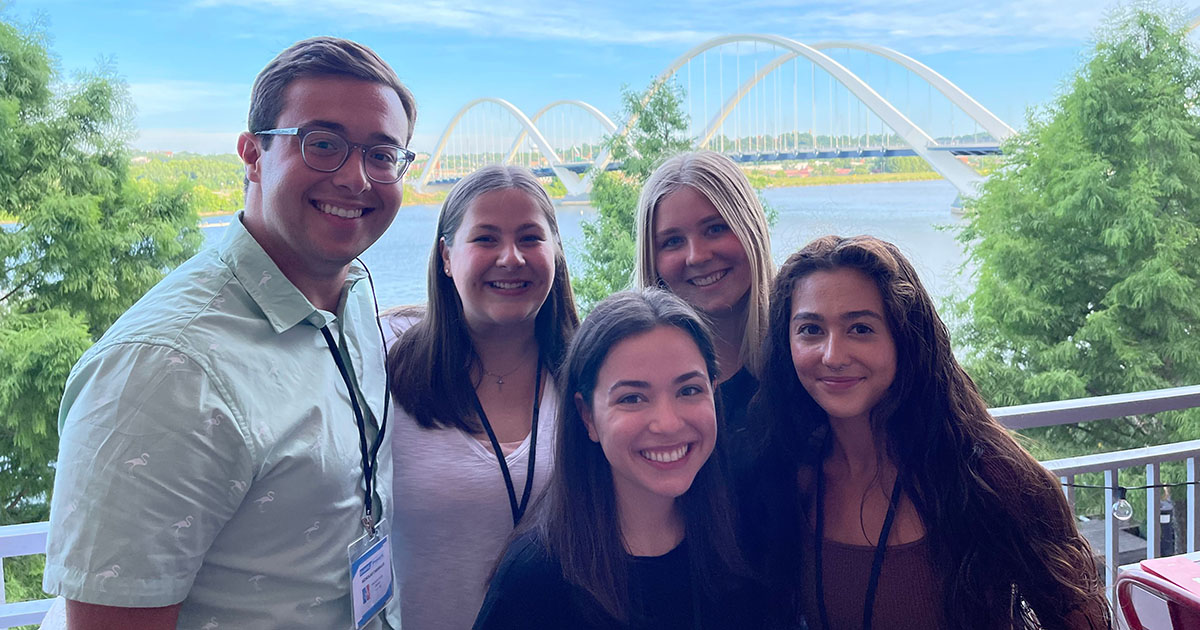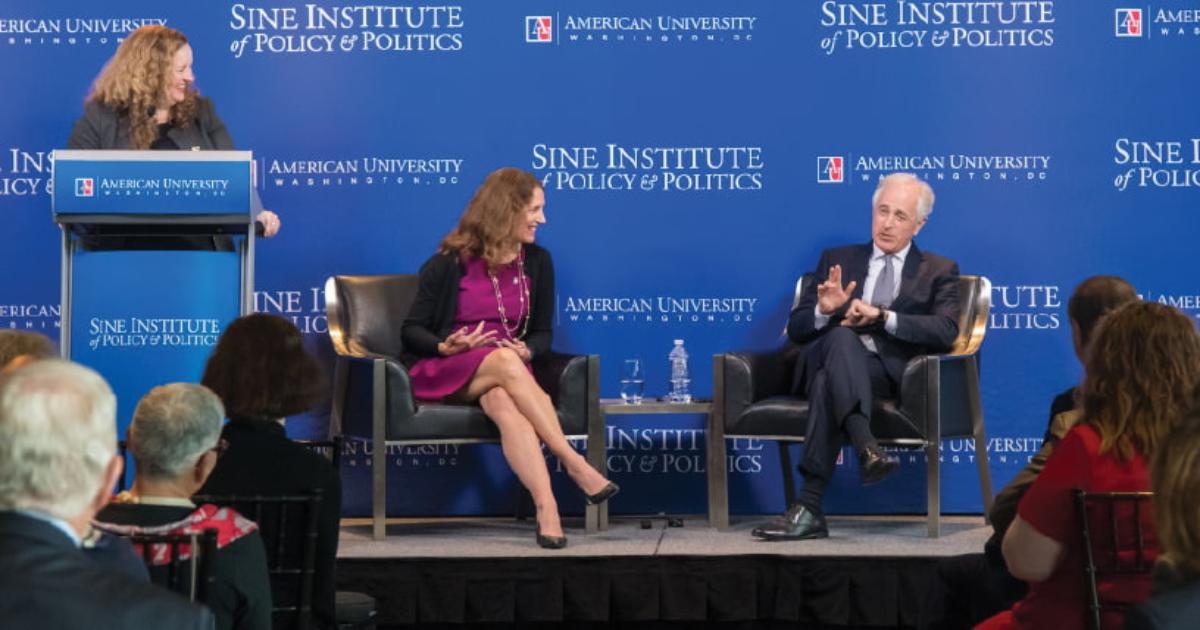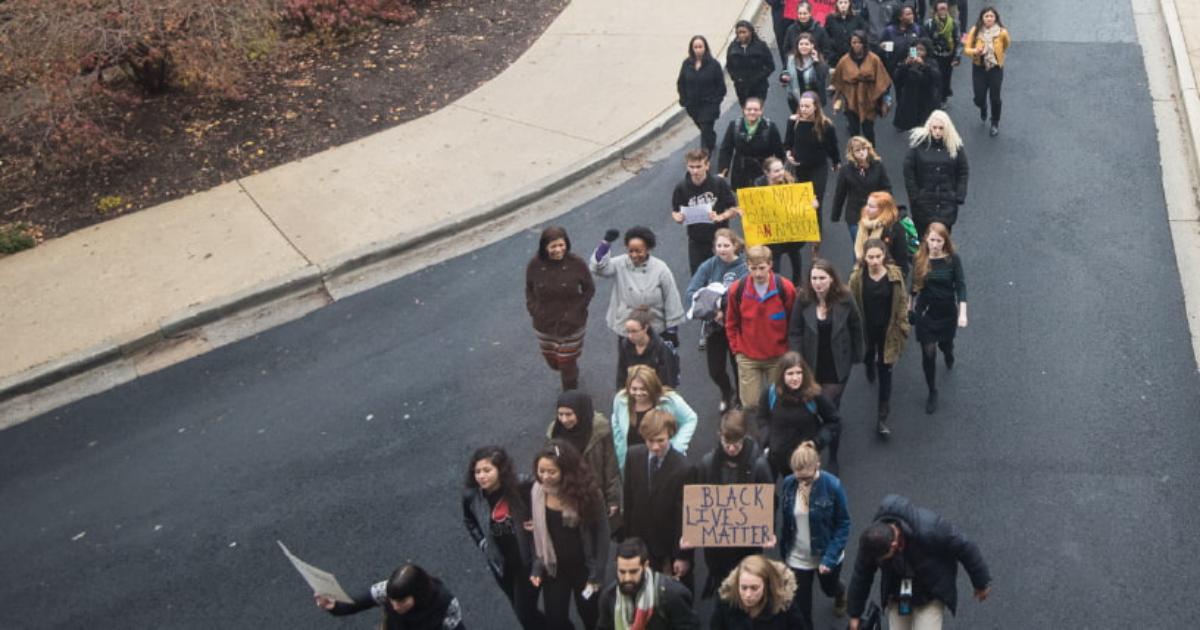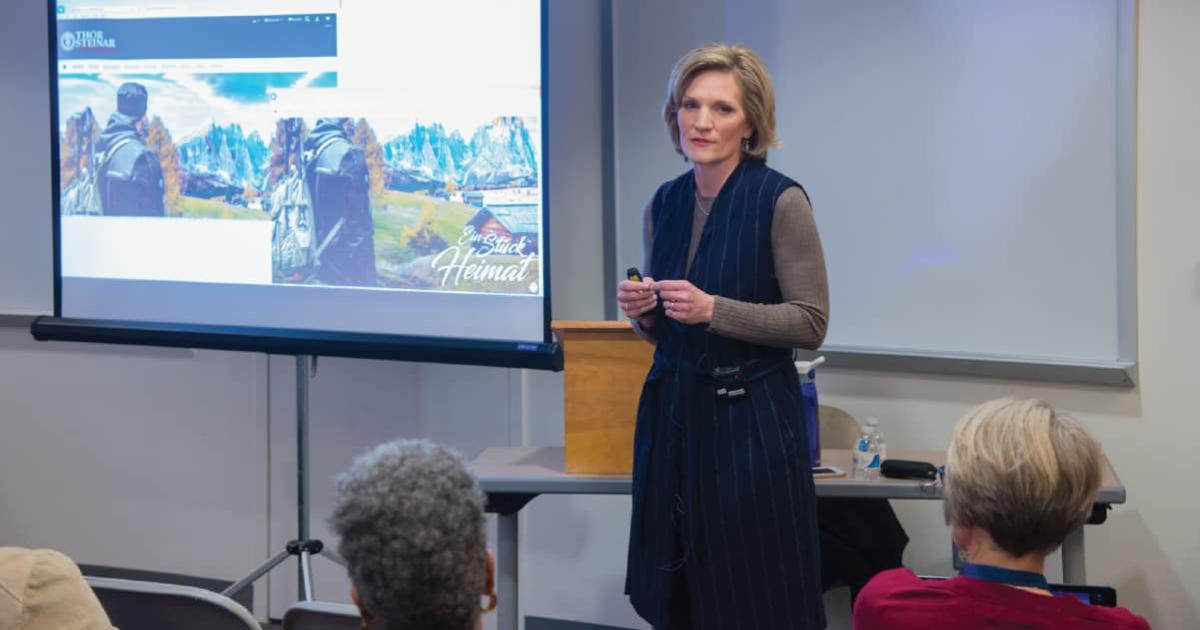Mascots on a Mission to Prevent Terrorism, Targeted Violence

An interdisciplinary team of eight American University students won the Invent2Prevent national competition with their creation of a series of age-appropriate educational resources that underscore with children in grades 1-6 that what they see online is not always true.
Their project, Developing and Understanding Critical Comprehension or D.U.C.C., helps educators and children’s families teach children to understand misinformation so they can identify extremist online content if exposed to it. The website includes guides for families and educators, lesson plans, and an animated video called Daniel’s First Day.
In it a diverse group of colorful, cuddly animals attending school learn about the harm that comes from judging and excluding a new student, a duck named Daniel, because of fake information they had read online. With the slogan “Quacking Down on Disinformation,” the team promoted their project with a social media campaign.
Invent2Prevent, initiated by EdVenture Partners and the McCain Institute for International Leadership, challenges university students to develop new products, tools, or initiatives to prevent terrorism and targeted violence. The team received a $5,000 cash award and entry into a one-year sustainment program, where they will have the opportunity to further develop their project.
The winning project started in a class taught by AU professor Cynthia Miller-Idriss, a renowned expert in extremist violence and director of AU’s Polarization and Extremism Innovation Lab, which tests prevention-based strategies to disrupt radicalization and extremism among youth. The AU students—with majors from the College of Arts and Sciences, School of Public Affairs, and School of International Service and several minoring in education through the School of Education—chose to focus on prevention tools for younger children because they are the group “often the most overlooked in counter-terrorism discourse,” according to their research.
“Today, children have uncensored and open access to the internet, leading them to believe everything they see and read online,” said Maya Green, SPA/BA ’24, a team member who built the website and designed and built the guides and lessons plans. “They are at risk of and more susceptible to online radicalization than any other age group. Early-childhood education is the best way to prevent this.”
As part of the launch, the team conducted two virtual focus groups after teaching lessons with 42 students in second and third grade classrooms in Wisconsin. The team’s results showed that all of the young students learned something new from the video, and 95 percent of them enjoyed it. Results also showed that after participating in the lesson activities and watching the video, all knew misinformation was harmful.
“Teachers and parents need to be involved and play a role in helping students develop the skills to identify dangerous media online,” Green said.
D.U.C.C. created this video so students can practice fact-checking information and identifying misinformation. Lesson plans and additional teaching resources are available on the D.U.C.C. website.
HOW WE MEET
THE CHALLENGE

AU’s Sine Institute Solves Problems at Intersection of Politics and Policy
Experts, scholars, and students search for solutions.
Full Story

The Power and Responsibility of Free Speech
Balancing competing ideas in today’s polarized society.
Full Story

Understanding and Interrupting Extremism
Creating impact by addressing extremism.
Full Story